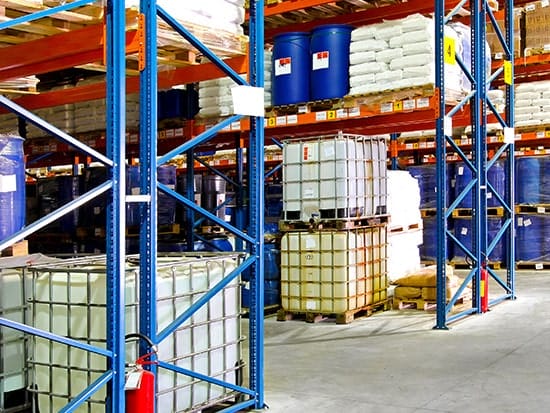Factories and manufacturing companies are responsible for generating a plethora of hazardous, non-biodegradable, and non-recyclable industrial waste. Industrial establishments in the UK produce more than 41 million tonnes of commercial and industrial waste every year.
Looking for ways to manage & reduce industrial waste? When this type of waste isn’t disposed of in the correct way, it pollutes the air and water in the area, thereby affecting its biodiversity and the health of those living nearby.
It is essential that these organisations follow the waste hierarchy so that the preference is always to avoid producing waste in the first place. Opportunities to safely reuse or recycle materials are preferable to disposal.
Here are a few effective strategies for industrial waste management and reduction.
1 – Dedicated Green Team
Industrial waste management is a complex process that involves a number of different stages, such as waste segregation, waste treatment, recycling, composting. In the absence of a dedicated team, the onus of reducing and disposing of the waste may fall to one individual within the organisation.
This is one of the main reasons why companies struggle to implement an effective waste management system. It is, therefore, important for you to build a “green team” combining employees from different departments who will provide different perspectives to your waste management strategies.
Alternatively, you can speak to our team of experienced experts who can assist with site waste audits, waste classification and identify ways where you can recycle more of your industrial waste, saving you time reducing overall cost.
2 – Liquid Effluent Waste
Water supply and disposal costs are rising and increasingly subject to more stringent environmental controls and regulations. The more contaminated your effluent waste and the higher volume you discharge, the more costly it is to dispose of.
Every company is responsible for its own waste, and there are strict regulations you must adhere to. However, water technology is quickly evolving and there may be a better way to recycle your wastewater and reduce the volume of effluent you are discharging to the sewer system.
A trade effluent audit by Oates Environmental would identify ways your business might be able to save money by treating and recycling wastewater, and otherwise reducing the volume of effluent you are discharging to the sewer system. We can provide up to 100% recyclability via ultrafiltration treatment on a wide range of hazardous and non-hazardous liquid effluent wastes utilising our bespoke, and Europe’s biggest, ultrafiltration effluent treatment plant.
3 – Reduce WEEE
Last year, electronic waste shot up to a record 53.6 million metric tonnes globally and there is no sign of a decline. There are a few ways where you can reduce your organisation’s amount of WEEE. You can consider leasing future IT equipment and company phones so that they are returned to Apple and Samsung after use and repurposed. Buying refurbished or second-hand equipment may also be possible within your industry. Alternatively, you can ensure that all your electronic equipment is recycled properly by a company with the current credentials.
We can collect, sort and classify for types of WEEE of recycling. From the smallest hand tool all the way up to the largest commercial/industrial refrigerator or air conditioning units.
4 – Packaging
Between your raw materials and end products, your company may produce an abundance of waste in the form of packaging materials. It is difficult to eliminate product packaging altogether, however, you can devise ways to minimise the environmental impact of your packaging.
Many companies are making a transition from plastics for packaging to more eco-friendly materials such as cardboard boxes. As for the packaging of your raw materials, you can try to reuse or recycle most of them.
Manage and reduce your industrial waste with Oates Environmental
As a total waste management company dedicated to providing zero to landfill solutions for your produced industrial wastes, Oates Environmental pride ourselves on offering a cost-effective and bespoke environmentally traceable cradle to grave service that is fully compliant and auditable at all stages ensuring your ‘Duty of Care’ obligations are taken care of at all times.
Manage and reduce your industrial waste – it’s good for you, good for the environment and your neighbours.
